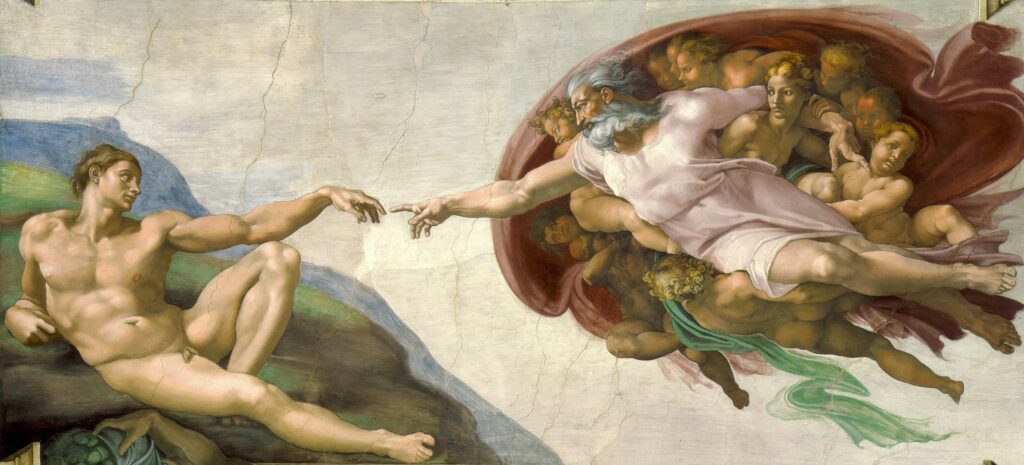
Call it a demiurge, cosmic force, or God; for hundreds of generations humankind has believed in a prime mover of the universe, a cosmic hand upon the wheel. The alternate idea, that the universe and life began accidentally or spontaneously without the intercession of a divine or supernatural force has been considered wrong by many if not most people, and such belief designated as dangerous heresy, overtly humanistic, improbable, and even an opinion worthy of burning at the stake.
There’s an undeniable risk of great hubris that accompanies the idea of a prime mover, namely placing humanity in extra-special categories: (a) fashioned in the image of God, (b) given dominion over all other living things, and (c) entering a divine realm of angels after death. In acts of reification, i.e., treating the abstract as concrete, we thus elevate ourselves to a privileged position in the universe, this despite the short duration of our species and the relative insignificance of our planet, solar system, and galaxy, just one among trillions of galaxies that we now know of.
I find the idea that life arose through chemistry and physics truly wondrous; it feels close to sacred. According to science, visible matter comprises a mere 4% of the universe, yet from that paltry sum life emerged; given as much as we know at this point, it’s really quite special. Non-living elements, nearly all of which are produced through the process of star creation and destruction, interact with each other in fascinating ways. Consider rusting iron.
In the presence of water, either liquid or vapor, oxygen and iron produce rust. In this case, water acts as a catalyst, supporting the reaction of two elements: oxidation. So it is generally in chemistry and physics; elements sometimes combine and interact, producing various effects. When chemistry becomes biology, these interactions create life in the form of organic proteins for example, the building blocks of living systems. Proteins are complex molecules and there are millions of different types. They can appear willful, as in viruses – simple bundles of proteins intent on reproducing whenever possible.
DNA, the deoxyribonucleic acid molecule, is particularly adept at reproduction, and if living conditions are favorable, exhibits a persistent urge to accurately self-propagate. In such conditions, DNA is self-catalyzing, able to carry on its reproductive mission without need of any outside assistance. Its evolutionary adaptations are billions of years old; life presumably will persist in some fashion on earth until and unless a cataclysmic event brings it to a screeching halt.
At this point in time no prime mover is required; life carries on just fine on its own. And by extension, we too are on our own. As social animals, we gather in large groups and aggregate in cities where our mutual habits can thrive. We need each other, which is why Thomas Hobbes famously called life of the solitary person in nature poor, nasty, brutish, and short. Banishment from others generally has meant death.
It’s not surprising that existence within an evolving universe includes evolving life; after all, why reinvent the wheel? These conditions, however, impart to us a high degree of freedom and self-responsibility, aspects of living that are anything but straight-forward, as Psychiatrist Eric Fromm noted in his insightful book Escape from Freedom.
Human destiny is in our hands, as uncomfortable as that makes many of us feel. Humanity is its own prime mover.
Beautifully stated Larry!
Is it time we find us a Prime Groover? An omnipotent figure to show us how to dance through life and leave only a happy trace!
As I said, we are our own Prime Groover! Groove on, man!